Most roofs in Arkansas last between 20 to 50 years, depending on the material and environmental factors. Asphalt shingles normally last between twenty and thirty years. Metal roofs have a longer lifespan they can endure for forty to fifty years. Tile roofs may also reach up to 50 years with proper maintenance. Humid air and storms impact how long something lasts. Correct setup and routine checks are vital for extended lifespan. Understanding these factors can help homeowners make informed decisions.
Key Takeaways
- Asphalt shingles typically last 20 to 30 years in Arkansas, influenced by humidity and storms.
- Metal roofs can endure 40 to 50 years but may face rust and thermal expansion issues.
- Tile roofs, with proper maintenance, can last up to 50 years despite heavy rainfall.
- Installation quality significantly affects roof longevity; poor installation can lead to early failure.
- Regular inspections for wear and damage are crucial for maximizing roof lifespan in Arkansas.
Discover How Long Do Most Roofs Last in Arkansas
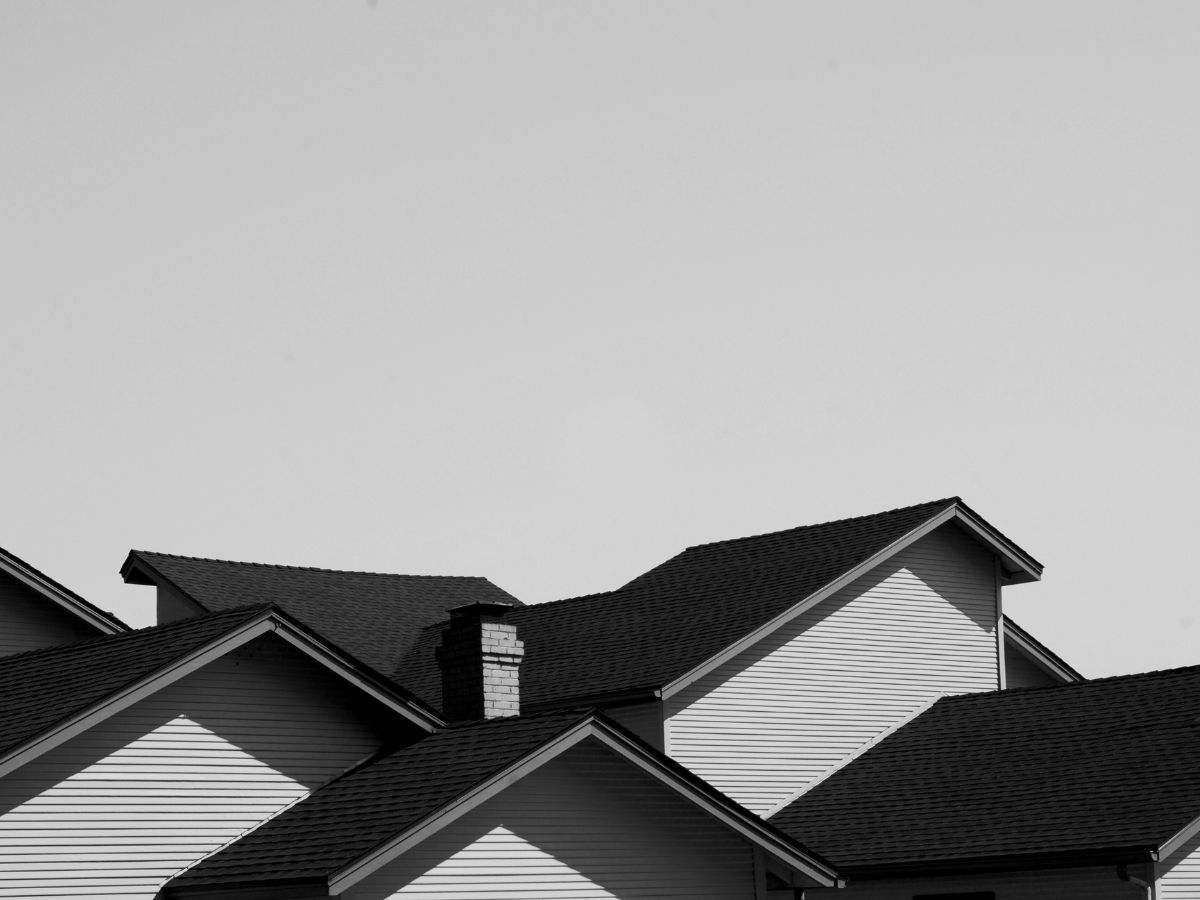
While the lifespan of roofs in Arkansas varies based on material and environmental factors, homeowners can generally expect different roofing types to last between 15 to 50 years.
Asphalt shingles, the most commonly used material, typically have an average lifespan of 20 to 30 years. Metal roofs, known for their durability, can last 40 to 50 years, while tile roofs may reach up to 50 years, depending on maintenance and installation quality.
To determine how to tell if your roof needs replacing, homeowners should regularly inspect their roofs for signs of wear, such as missing shingles, leaks, or visible sagging.
Additionally, granule loss from shingles or extensive moss growth may indicate a need for replacement. Understanding the average lifespan of a roof and recognizing these warning signs can help homeowners make informed decisions about maintenance and replacement, ensuring the safety and efficiency of their homes.
The Impact of Arkansas Weather on Roof Lifespan
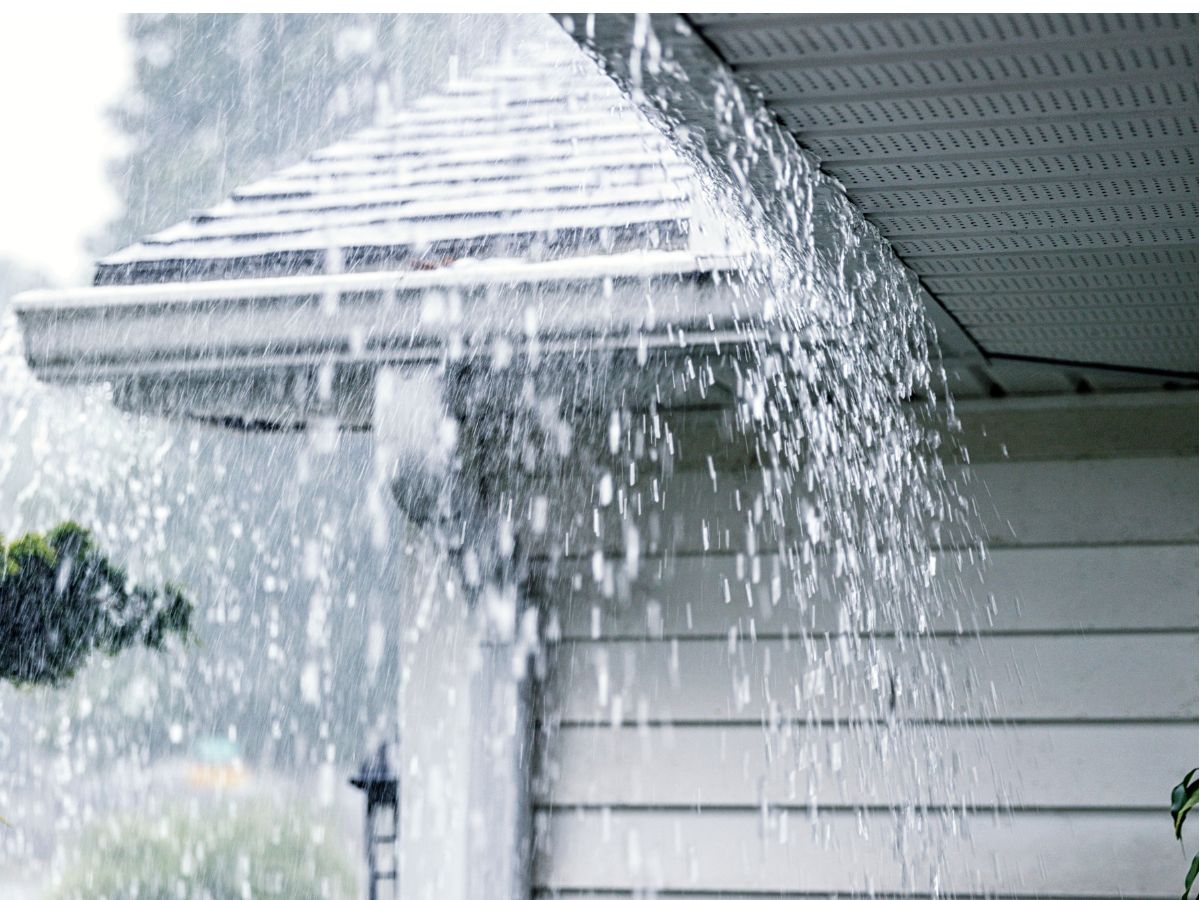
Arkansas experiences a unique climate that significantly influences the lifespan of roofs across the state. The combination of high humidity, frequent storms, and temperature fluctuations can shorten how long do most roofs last.
For instance, asphalt shingles, which typically have an average lifespan of 20 to 30 years, may deteriorate faster in Arkansas due to moisture and extreme weather events. Metal roofs, while often more durable, can also be impacted by rust and thermal expansion.
Tile roofs tend to withstand the elements better and may achieve a lifespan of 30 to 50 years, but they are not immune to the effects of heavy rainfall and wind.
Understanding these environmental factors is essential for homeowners, as they directly affect what is the average lifespan of a roof. Being proactive with inspections and maintenance can help mitigate weather-related damage and extend roof longevity.
Role of Installation Quality in Roof Longevity
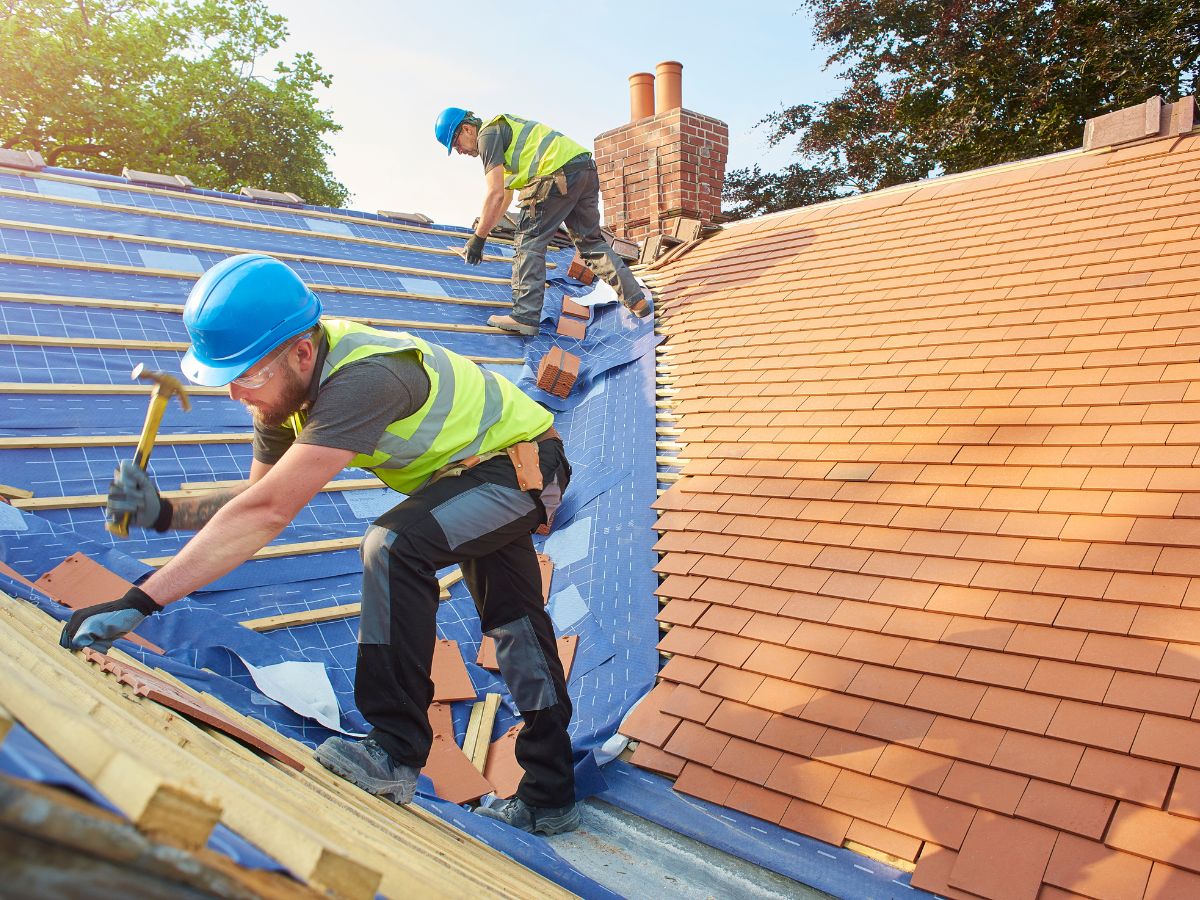
Although the quality of installation may often be overshadowed by the choice of roofing material, it plays a crucial role in determining a roof’s longevity. Proper installation ensures that roofing materials, whether asphalt shingles, metal, or tile, can withstand Arkansas’s challenging weather conditions.
Poor installation can lead to premature failure, regardless of how much a roof costs. A well-installed roof can last significantly longer, while shoddy workmanship can shorten its lifespan dramatically.
Homeowners should consider hiring experienced professionals to ensure quality installation, as this is often the difference between a roof that endures and one that needs replacement sooner.
When evaluating what type of roof lasts the longest, it is imperative to remember that even the best materials require expert installation to exhibit their full potential. The combination of high-quality materials and skilled labor ultimately determines the durability of a roof in Arkansas.
Signs Your Roof Needs Replacing in Arkansas
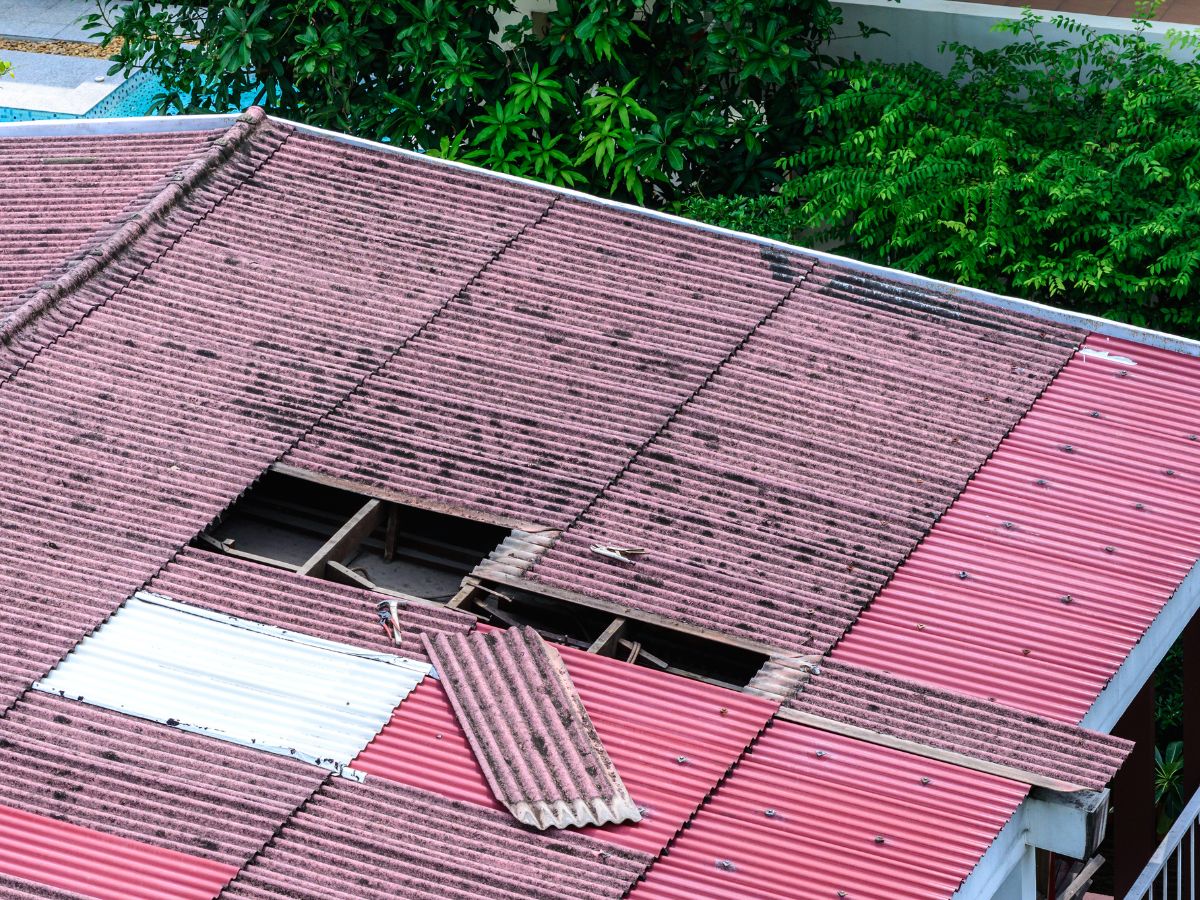
Recognizing the signs that a roof needs replacing is vital for homeowners in Arkansas to maintain the safety and efficiency of their homes. Common indicators include missing or damaged shingles, which can expose the underlying structure to moisture and pests. Homeowners should also look for significant granule loss in asphalt shingles, as this can diminish their protective capabilities.
Additionally, water stains on ceilings or walls may suggest leaks, warranting immediate attention. A sagging roofline often indicates structural issues that necessitate replacement. Furthermore, if daylight is visible through roof boards, this points to severe wear and deterioration.
Regular inspections, particularly after severe weather events, can help identify these concerns early. By staying vigilant for these signs, Arkansas homeowners can take proactive steps to ensure their roofs remain reliable and effective, ultimately safeguarding their homes from the state’s challenging weather conditions.
Cost Considerations for Roof Replacement and Repairs

Homeowners in Arkansas frequently face important cost considerations when it comes to roof replacement and repairs. Understanding these costs can significantly impact their budgeting and decision-making processes.
| Expense Type | Average Cost (Low) | Average Cost (High) |
| Asphalt Shingles | $3,000 | $7,000 |
| Metal Roofing | $5,000 | $12,000 |
| Tile Roofing | $8,000 | $20,000 |
| Repairs | $500 | $2,500 |
These figures illustrate the varying expenses associated with different materials and the potential costs of repairs. When asking how much does a roof cost, homeowners must also consider labor, disposal fees, and potential hidden issues like structural damage. By evaluating these factors, Arkansas homeowners can make informed choices that will protect their investments and ensure their roofs withstand the state’s diverse weather challenges.
Best Roofing Materials For Long Term Durability in Arkansas
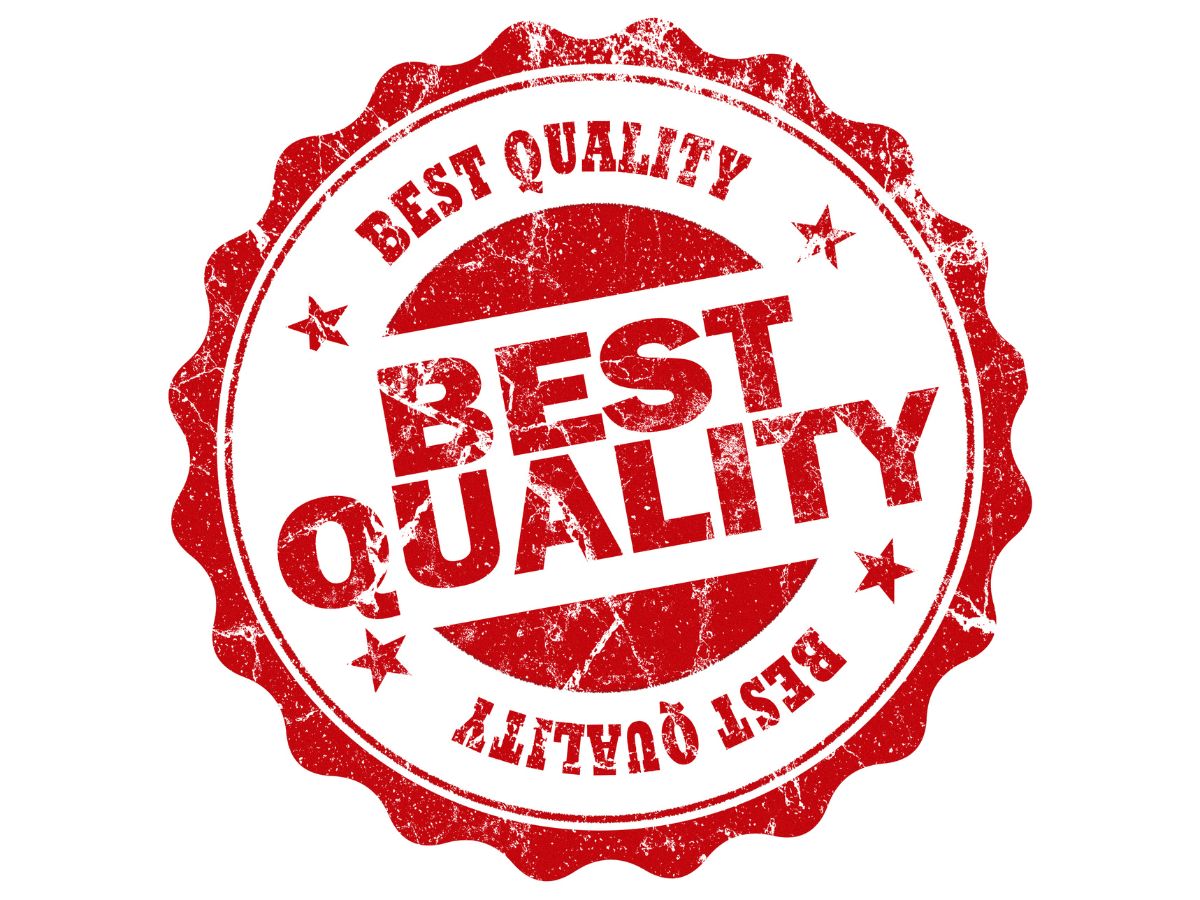
Selecting the right roofing material is crucial for ensuring long-term durability in Arkansas’s unique climate. Homeowners often face high humidity, severe storms, and significant temperature fluctuations, which can impact the lifespan of various roofing options.
Metal roofing stands out for its resilience; it can withstand harsh weather, resist rust, and last 40-70 years with proper maintenance. Asphalt shingles are a popular choice due to their affordability, typically lasting 20-30 years, but they may require more frequent replacements in extreme weather.
Clay and concrete tiles offer exceptional durability, often lasting over 50 years, though they can be heavier and more costly. Ultimately, the best choice for roofing materials in Arkansas involves balancing durability, cost, and aesthetic preferences while considering the local climate‘s demanding nature.
Homeowners should prioritize materials that offer both longevity and protection against the state’s weather conditions.
Frequently Asked Questions
What is the average lifespan of a roof?
In Arkansas, the average roof lifespan ranges from 20 to 50 years, depending on the material and environmental conditions. Asphalt shingles typically last 20–30 years, while metal roofs can last 40–50 years. Tile roofs may reach up to 50 years with proper maintenance. Factors like humidity, storms, and installation quality significantly influence these timelines.
What type of roof lasts the longest in Arkansas?
Metal and tile roofs are among the longest-lasting options in Arkansas. Metal roofs can endure 40–70 years when maintained well, offering durability against storms and humidity. Tile roofs, though more expensive and heavier, also offer excellent resistance and can last 50 years or more, making them ideal for long-term protection in the state’s challenging weather.
How often should I inspect my roof in Arkansas?
It’s recommended to inspect your roof at least twice a year, ideally in spring and fall, and after major storms. Regular inspections help identify issues like missing shingles, granule loss, or leaks before they worsen. Staying proactive with maintenance can significantly extend your roof’s lifespan in Arkansas’s humid and storm-prone climate.
What are the benefits of choosing a metal roof in Arkansas?
Metal roofs offer long-lasting durability (40–70 years), resistance to humidity, wind, and hail, and energy efficiency by reflecting heat—helping reduce cooling costs in hot Arkansas summers. They also require less maintenance than other materials and are often made from recycled materials, making them an eco-friendly and cost-effective choice for Arkansas homeowners.
Final Thoughts
In Arkansas, where weather patterns bring heavy humidity, storms, and temperature shifts, understanding roof lifespan is essential for protecting your home. Most roofs last between 20 to 50 years depending on the material—though that lifespan is strongly influenced by local climate, installation quality, and maintenance practices. Asphalt shingles offer affordability but may require more frequent replacement, while metal and tile roofs provide greater durability. Regular inspections and professional installation are key to maximizing performance. Making informed choices ensures your roof can endure Arkansas’s demanding weather and safeguard your home for decades. Ready to extend your roof’s lifespan or explore your best roofing options? Contact Patriot Roofing & Restoration today to schedule your no-cost inspection—we’ll shield you from the storm!




